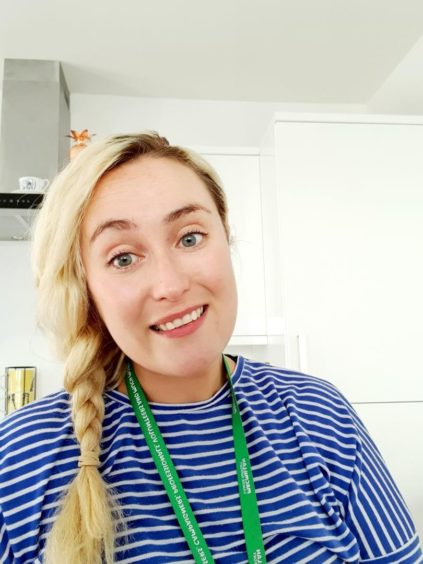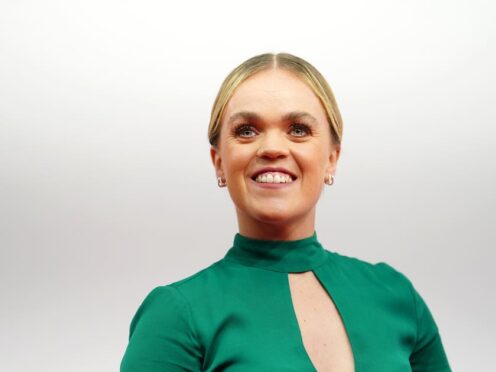On average, 32,000 cases of cancer are diagnosed in Scotland per year, and almost everyone knows someone who has been affected by the disease. Dundee Macmillan Improving the Cancer Journey (ICJ) supports people affected by cancer living in the city.
Corrine Ewing, a Macmillan support facilitator with Dundee Macmillan ICJ, explains: “In my role, I support people affected by cancer with any concerns they have – about their diagnosis, effects of treatment or practical issues like not being able to work or move around because of their diagnosis and treatment.
“I listen as people share emotional feelings such as how to talk to family and friends about their illness; many people can find this difficult. Whatever matters most to a person, we do whatever it takes to get them the support they need.
“I got involved because I have been affected by cancer in the past, therefore I had insight into how it affect lives – those living with cancer, their friends and family – and wanted to work in a job where I could make a difference.”
Corrine’s daily routine will see her having one-to-one meetings – over the phone since Covid – with people affected by cancer.
“Using a tool called a Holistic Needs Assessment, we talk about what matters to them,” she says.
“For example, we might uncover that the person needs help with money. One of our Macmillan Benefits Advisors would then look to see what financial support may be available.
“Or I may learn that the person is not managing emotionally, and I can refer them to a psychologist. I work together with the person affected by cancer to see where they need some support and what that could look like.
“I’m always amazed by how keen people are to help themselves once they learn about what there is available in their community.”
Dundee Macmillan ICJ have released a new animation in partnership with Dundee City Council, to help make the cancer journey a little easier.
“It tells the story of a woman known as ‘Jane’ – not her real name – who is living with stomach cancer,” Corrine explains.
“Jane is not only living with cancer, but also celiac disease, and this makes her experience with cancer more difficult. She’s also suffering from depression and loneliness.
“Managing cancer treatment along with dietary requirements can be difficult, especially if you are on your own. Due to not eating enough of the right foods, her energy levels fall and things begin to get on top of her.
“The story was inspired by a real person’s lived experience and how we helped Jane access the support that enabled her to feel better.”
Corrine reveals some of the less obvious different ways cancer can affect people.
“When people think about the impact of cancer, they often think of having hospital treatment, feeling unwell and managing pain and anxiety. What people often don’t think about is how it can affect so many other areas of our lives such as our relationships, our hobbies, our finances or even our faith,” she points out.
“Living with cancer can put strain on relationships with family, and it can also make people ask themselves ‘why me?’ and struggle to make sense of the diagnosis.
“It can feel like your life is being turned upside down, which is why reaching out to get support is so important. Talking to someone outside of your circle of support, like myself or someone else from Macmillan or other people living with cancer through support groups, can be really helpful.
“It’s so important to reach out and get support in times of difficulty,” Corrine continues.
“Now more than ever, the lockdown having stopped many of the ways we connect with each other. My number one top tip for coping is to speak to someone else about it, whether that be someone you know or a professional from Macmillan.
“Finding ways to relax and keep anxiety at bay as much as possible, such as practising mindfulness or exercise that helps your mind. These are just some of the ways we try and help people living with or affected by cancer.”
Corrine helps that the animation will let people know that it’s OK not to be OK.
“Whether you are living with cancer yourself or have a loved one who’s been diagnosed, reaching out to get support, whether it’s practical, emotional or simply just to talk to someone about what’s going on, it’s so important to make contact and ask for help,” she stresses.
“The people we support know they can pick up the phone to us. The key thing is to not suffer in silence and know that support is out there. With the pandemic adding even more anxiety and strain to people’s lives, it’s really important that anyone affected by cancer knows that support is available.
“The Dundee Macmillan ICJ service is encouraging anyone affected by cancer to get in touch, including anyone who is worried about a friend or relative.”
The animation can be watched at https://fb.watch/48tlxqs63I/
You can contact the Dundee Macmillan ICJ service on 01382 433340 or email improving.cancerjourney@dundeecity.gov.uk
The Macmillan Support Line is also available seven days a week from 8am to 8pm for anyone affected by cancer on 0808 808 0000.
More like this:
Cancer can be a lonely journey but Dundee Macmillan ICJ is there to make sure it’s not











